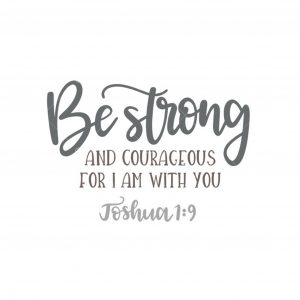Pastoral Care

The Pastoral Care Pen
We’re excited to introduce our new Middle School Chaplain, Laura Tepe. Here’s a quick hello from Laura:
“Hi Genesis community! Thank you for welcoming me into your College – I am so enjoying meeting you and getting to know you all! I grew up in Melbourne but am loving life here in Brisbane. I am enjoying the warmer weather and exploring the beautiful beaches, rainforests and mountains here in Queensland. I love netball and AFL, and am a third-generation Lions fan. On the days I’m not working at Genesis, I run a wedding stationery business. I’m particularly passionate about seeing young people come to know Jesus for themselves and learning what it looks like to follow Him. I’m looking forward to having great conversations, asking big questions, and journeying with students to discover the amazing young men and women they have been created to be.”
Helping our kids to weather the storms
As we know, life is full of storms that can be unpredictable and at time, relentless. It can be so hard to watch our children go through difficult times and it is very easy to worry about how they will cope. Over the years in my role I have watched and walked with so many children and young people who have gone through really difficult times, and I have had the privilege of being witness to their incredible capacity for resilience and strength. I have learnt that there are definitely a few factors that contribute to this resilience.
Research shows that when young people go through challenging times, rather than it being a given that they will have Post Traumatic Stress, it is also possible that they can have Post Trauma Growth. This means that despite the traumatic event, over time there can be growth that comes. According to the founder of Positive Psychology, Martin Seligman, this all starts with the belief that storms will happen to me but the question is, am I prepared for them? Consider these 4 tools needed for growth.
- Foundations – A strong foundation can help to ensure that when the storms come they can draw strength and fortitude to stand strong. A foundation built on security, safe people and places, healthy distractions, helpful habits, unconditional and consistent love and acceptance. When young people have people who believe in them, encourage them, be consistently there for them and advocating for them when they can’t. This helps them to keep make necessary steps forward.
2. Love languages – Loving your child their way. We are all wired differently to give and receive love, including our children. According to researchers there are 5 main different ways to give/receive love –
-
- Healthy touch
- Gifts
- Words of Affirmation
- Quality time
- Acts of Service.
Author of Love Languages, Gary Chapman explains, “Relationships grow better when we understand each other. Everyone gives and receives love differently, but with a little insight into these differences, we can be confidently equipped to communicate love well”. Sometimes we can be giving our best efforts to be communicating love to our child but it can be lost in translation if it is not loving them uniquely to who they are. Do you know your child’s love language? Take the test here.
When we give time to ‘fill our child’s love tank through their way of receiving love’ this can increase their feeling of being seen, known, understood and therefore secure and thus creating resilience. Take a look as some of the great resources available
3. Soft heart and a strong mind – Our children need their primary care givers to be a soft place to land in what can be a harsh world, especially when they make a mistake; they need love, wisdom and guidance. They also need to see the mental fortitude it takes to stand strong and walk through tough times. When we model these two attributes hand in hand, we are giving our young people a road map to having what Brene Brown calls ‘a Strong Back and Soft Heart’. Instilling both kindness for self and others and a mindset that does not give up in tough times but learns how to problems solve, creates an inner strength that lasts the distance.
4. Boundaries – Our children need to hear the word ‘no’ when it is for their own protection, health and benefit in order to feel loved, safe and secure. They will react, but this will fade over time, especially when they realise your motive for saying no is out of a deep love and care for them. Being consistent in our ‘no’ and in keeping safe–guards in place is the key to them respecting and listening to you in the tough times.
We need to also allow ‘yes’ when appropriate, even to the things that may involve age-appropriate risk. When a child never gets a ‘yes’, they can grow bitter, resentful and rebellious. But when we allow them to do things that bring growth, fun and enjoyment in their life within your boundaries, the relationship of trust between you grows. Follow the link for more helpful advice on healthy boundaries
It is our hope as educators in a school, to not only build a strong academic foundation, but that we support the whole child as much as we can to give them the best chance of a strong future. It is our joy to partner with you to help our young people Grow and Flourish!
It is our joy to partner with you to help our young people Grow and Flourish!
With thanks,
Louise Klar
Head of Pastoral Care and Growth







